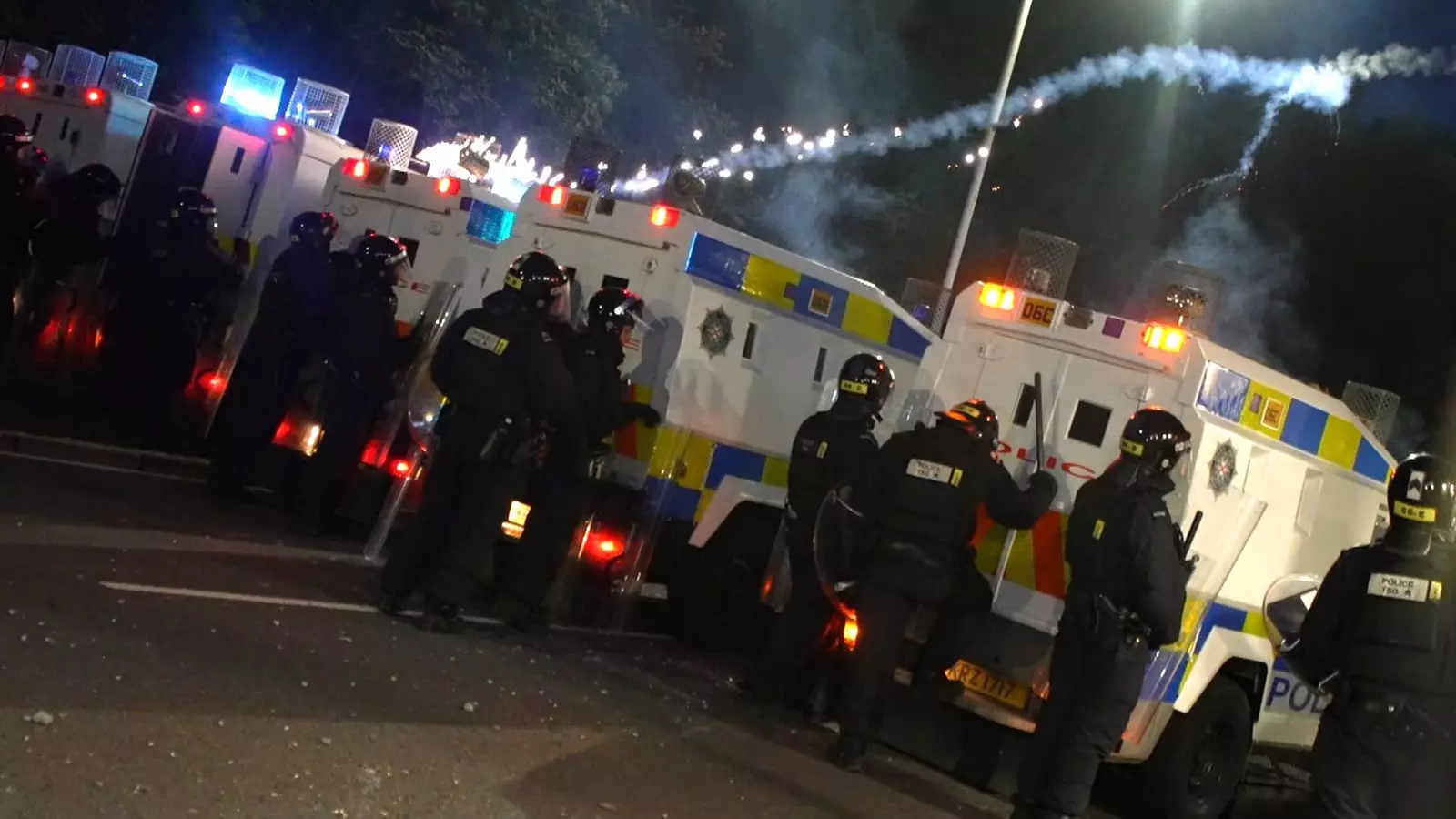In a grim turn of events, Northern Ireland has witnessed a harrowing escalation of violence as communities grapple with the aftermath of a shocking incident involving the alleged sexual assault of a young girl. The frustrations that erupted in Ballymena have now spread to Portadown, revealing the underlying tensions simmering beneath the surface. The transformation of a local grievance into a riotous spectacle underscores a frightening reality: that anger can metamorphose into unchecked violence when intertwined with issues of race and identity.
From Protest to Chaos
What initially began as a legitimate outcry over the incident involving two 14-year-olds has, tragically, devolved into a nightmarish tableau of molten rage and petrol bombs. As fireworks and bottles rained upon law enforcement, it became clear that the real enemy was not merely the two boys accused but rather the morass of societal hatred that has been inflamed by these accusations. This paints a disturbing picture of a society that is quick to scapegoat, where the behavior of a few can lead an entire community into chaos. The involvement of a Romanian interpreter, seemingly innocuous, has become a catalyst for racist rhetoric, showcasing how prejudices can infect a bereft social landscape.
The Human Toll
Every report of violence brings forth the haunting images of its victims—families forced from their homes, children cowering in fear, and mothers clutching their loved ones in desperation. The impact on community psyche is insufferable, and the emotional aftermath will be felt long after the last petrol bomb has been extinguished. The Northern Ireland Housing Executive’s decision to provide emergency accommodations to 14 families is a poignant reminder of the human cost of this insanity. How many more lives must be disrupted before we recognize the destructive cycle born of hate and fear?
Political Responses: A Call for Unity
Amid the turmoil, leaders have taken to the public stage to condemn the violence. First Minister Michelle O’Neill’s assertion that the scenes witnessed are “devastation” hits the nail on the head. Her condemnation of the “racist, violent attacks” resonates, as it emphasizes that the perpetrators are not merely criminals; they are a manifestation of a broader societal malaise that thrives on division. For communities to heal, a unified approach is necessary, one that embraces diversity and actively combats entrenched prejudices. As police reinforcements from Scotland prepare to arrive, it remains crucial that law enforcement not only pacifies the unrest but also intertwines its strategies with community rebuilding efforts.
Fostering Compassion Over Conflict
In a landscape fraught with pain and anger, the question emerges: how can Northern Ireland transition from hostility to healing? It requires a concerted effort from every facet of society—grassroots movements, educational reforms, and civic discussions must champion a narrative of understanding over animosity. The complexities of racial dynamics can and must be untangled through dialogue, compassion, and a forward-thinking mentality that recognizes our diversity as a strength rather than a weakness.
While the immediate situation remains precarious, the opportunity to reforge bonds within segregated communities is ripe for the taking. Leaders and citizens alike can become agents of change, ultimately deciding whether this chapter in Northern Ireland’s history will be defined by discord or the resurgence of unity.

